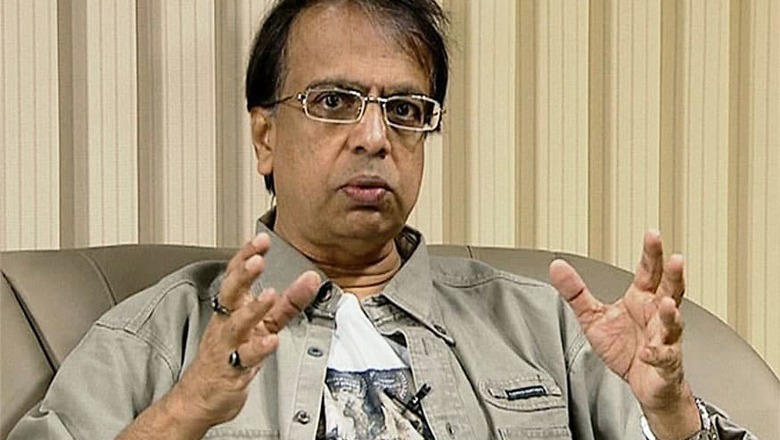
views
Satyajit Ray may have been dead for 26 years, but his memory – the memory of his marvellous movies – fails to fade. At the recent Cannes Film Festival that I covered, there were at least two men who asked me about the master story spinner. And it seemed so incredible that one of them was a young Arab journalist, not even 40, who shot a dozen questions at me about Ray. Obviously, the iconic auteur – who wrote his own detailed scripts (even drawing the costumes), sketched and even did his own music for his movies – is still as relevant today as he was in the mid-1950s, when he first sang the Song of the Little Road (Pather Panchali). It clinched the Best Human Document Award at the 1956 Cannes Film Festival from a jury which included celebrities like Francois Truffaut, one of the French New Wave directors. Pather Panchali certainly opened up Indian cinema to the world, a world which till today continues to cherish Ray and his cinematic excellence.
Let us fast forward to 2019, and it is quite possible that Ananth Mahadevan may help highlight Ray all over again, at the Cannes Film Festival. Mahadevan's The Storyteller, based on Ray's short story, may hopefully play there. And the director seems determined to get the world talking about Ray, as he told me over the telephone from Mumbai this morning that The Storyteller poster will have Ray's name on top, “the first ever occasion this will happen after the master's death in 1992”.
The Storyteller -- originally titled in Bengali as Golpo Boliye Tarini Khuro -- is one of the 15 adventures of Tarini Khuro or Paternal Uncle. And in Golpo Boliye Tarini Khuro, which Mahadevan is all set to shoot from June in Kolkata and Ahmedabad (with some indoor scenes to be canned in Mumbai), the Uncle turns storyteller after he retires from his job. Called to entertain a rich businessman, Tarini Khuro finds himself in a peculiar situation. “Ray throws up two surprises in the story”, Mahadevan tells me.
I have read the story, having grown up in Ray's own city, but am still curious to see how Mahadevan would handle the plot and the surprises. Obviously, Ray's son Sandip, must have been absolutely confident about Mahadevan's work to have offered the rights of The Storyteller. If Ray's spun his stories with disarming simplicity and made a kind of cinema which had no trace of pretense and which was subtle, but biting, which was meaningful without being meandering, Mahadevan's work has been running on a similar track.
I remember watching Mahadevan's Rough Book in the National Film Development Corporation of India's Film Bazaar at Goa's Panaji in 2014, and the movie captivated me. The film talks about real education. In a nation which is obsessed with cramming and grades, Rough Book narrates the story of a schoolteacher (essayed by Tannishtha Chatterjee ) who runs into one obstacle after another because she believes in teaching physics (in her case) not merely through books. For instance, she wants to take her young students out of the classroom to show how the law of physics works rather than confining them to boring lectures in boxed-up places. Obviously, a society driven by consumerist ideals where marks count and help one to land a plum position, has no time or inclination for a concept called real education. Mahadevan's movie - neatly scripted at 92 minutes - may seem a bit too idealistic in today's India, even ambitious, but Rough Book makes its point with a flourish.
Given this kind of approach, I am sure Mahadevan will turn out to be worthy of having been entrusted with The Storyteller.
There is another aspect about The Storyteller that I am waiting to see. Ray wrote this story in a mood of melancholy. Even remorse. In 1967, Ray wrote a story called The Alien, which he sent to several Hollywood studios. Ray had hoped then to break into Hollywood, which he said, time and again, had taught him the craft of film making. But The Alien could not break into the Hollywood fortress.
However years later, when Steven Spielberg's classic E.T. The Extra Terrestrial opened in 1982, its plot seemed uncannily similar to The Alien. E.T. chronicled the poignant plot of a lonely boy, Elliott, and his friendship with the extraterrestrial, dubbed “E.T.”, who was stranded on Earth. Over the course of the movie, Elliot kept the creature hidden from his mother and the Government, to finally help him return to his home planet.
Ray's The Alien had a similar plot – about an alien landing in Bengal and befriending a boy. During its short stay on our planet, the alien plays pranks, harmless though, with the villagers. The screenplay was based on Ray's own 1962 Bengali science-fiction story, Bonkubabur Bandhu, which was published in his magazine, Sandesh.
After Spielberg's E.T. hit the theatres, Ray told India Today in February 1983: “E.T. would not have been possible without my script of The Alien being available throughout the United States in mimeographed copies.” Spielberg denied this and said, “I was a kid in high school when his script was circulating in Hollywood,”. But even Spielberg's friend and renowned auteur, Martin Scorsese, alleged that E. T. was influenced by Ray’s script!
Ray was extremely disappointed, and out flew from his pen The Storyteller – which Mahadevan is all set to transform into a movie with a brilliant cast of Naseeruddin Shah, Paresh Rawal, Revathi and Tannishtha Chatterjee
(Gautaman Bhaskaran is an author, commentator and movie critic, and may be e-mailed at [email protected] )

















Comments
0 comment